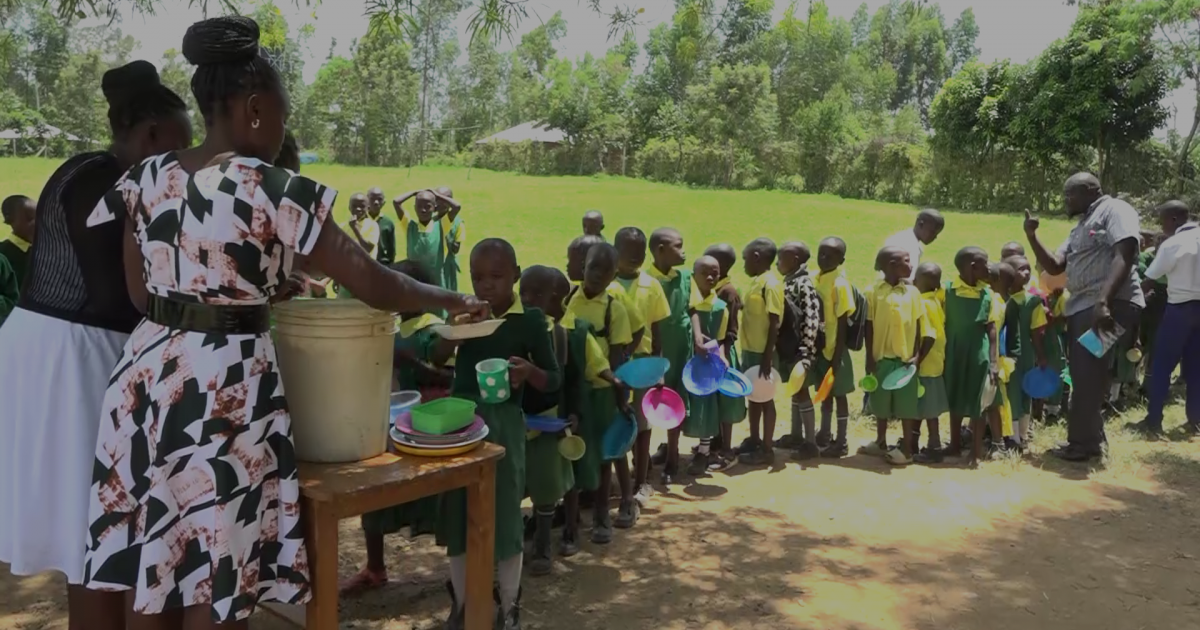The advent of the Competency-Based Curriculum saw teachers crack their heads on how best will they use the available resources to churn out all–round students who will fit in the competitive world.
At Ugolwe Primary School, where each millimetre of soil counts. Here, a myriad of vegetables, legumes, tubers and fruit trees have systematically been replacing flowers and unwanted weeds and shrubs.
The adverse effects of climate change have seen experts scratch their heads trying to come up with the best practices that will ensure that the food chain is not interrupted.
Among the practices that have come up is “permaculture”, a system where the modern need of humans is intertwined with sustainable efforts to protect nature and its resources.
According to the school head teacher, George Odhiambo Ongalo, the concept was sold to them by a nongovernmental organisation, SCOPE Kenya and since its adoption; it has made the school community gel well with the parents and the community around.
Ongalo says the project has seen the school turn a former soil erosion-ravaged land into a productive one where a variety of crops thrive.
“These crops have generated a lot of benefits as they are consumed by the pupils from both the primary and junior secondary school.
He says that each of the classes, from early childhood development to the junior secondary students have two days set aside for them to enjoy meals from the school garden.
Ongalo says that occasionally, the school sells the vegetables whenever they are too much, with the proceeds used to purchase maize, cooking oil and sugar to subsidise the school feeding programme.
The head teacher says that through the project, enrolment has increased to stand at 310 pupils, adding that truancy amongst students has also gone down tremendously.
“The teacher–pupil time contact has also improved as learners don’t waste a lot of time going home to eat” he adds.
The biggest benefit, says Ongalo, is the ability to host competency-based curriculum (CBC) students for practical lessons as they don’t have to move out of the institution to practically learn what they have been taught in theory.
“Some of our pupils are implementing the same in their homes,” he said.
He says that the community, especially parents in the school, has embraced the project and has been helping in the farm.
The teacher in charge of the project, Francis Ochieng Oduor says that the project, which was started in October 2023 was mooted out of the desire to produce more food in the available space using minimal input.
“We wanted to maximise on the limited land,” he says adding that initially, the flowers dotted most of the available space within the compound.
Oduor says that the learners have been apportioned duties and workstations.
“The learners take care of the crops which they weed and water as well as the chicken,” says Oduor.
He says that the project involves the intertwining of crops so that they benefit each other, adding that all the crops are produced organically without using chemical fertiliser.
“Some of the plants and vegetables in this farm are used to scare away pests that would invade other species,” he says.
Oduor echoes the head teacher’s sentiments that the project has helped the students a lot in terms of practical lessons.
“We realised that this programme is in line with the CBC. Things like sack gardening and vertical gardening that is learnt in agriculture are practised here and this gives us an easy time implementing the curriculum,” he says adding “CBC is hands-on and the project is engaging our learners outside the classroom in the farm and once they have done it outside, relating it in class becomes very easy for us”.
Apart from the vegetables, the school also treats the pupils to juice made from Hibiscus petals from the same garden.
According to teacher Beatrice Barasa, Hibiscus is planted both as a flower and also as a source of nutrition through the juice.
Barasa says that the garden also has Artemisia that is used to treat malaria within the garden.
The student in charge of the garden, Serfine Atieno hails the project which, she adds has helped the institution control erosion on its sloppy land.
She says that the students have learnt a lot in terms of agriculture and are always eager to help in the farm.
Parents and the local community say that through the initiative, they have also learnt how to maximise production on their small pieces of land.
According to Lydia Atieno Oduor, most of the people around the school stopped going to the markets to purchase vegetables as they are now producing their own, courtesy of the knowledge they got from the project.
“Initially, we were relying on our husbands for food. We are now producing our own and even sell vegetables” she said.
Her sentiments are echoed by Margaret Atieno Ouma, the chairperson of a local women’s group who says that they plant a variety of vegetables such as Amaranths, Akeyo, Mito and many others.
“We have worked hard on this project and we are happy with the fruits of our labour” says Mrs. Ouma who leads a team that takes care of the garden whenever the schools are in recess.
Among the challenges facing the project is the lack of adequate land to enable the school to produce enough to feed the students.
With just a fraction of a hectare hosting the school, the Ugolwe primary and junior secondary school community had to think out of the box on how best to utilise the land and give pupils and students the best exposure they need for science and agriculture practical lessons.
School buildings had already taken the largest share of the 0.8-hectare piece of land that the school occupies in Rang’ala sub-location, Ugunja sub-county. The remaining piece of land hosts a playground and a few toilets.
As the school community pondered on the best way to utilise the small piece of land they have, the idea of adopting “Permaculture”, a concept where land is put to maximum use came up.
“The only disappointment is the size of land that cannot sustain enough produce to feed the pupils throughout the year,” says head teacher Ongalo.
He is calling on well-wishers to help Ugolwe school acquire more land, even though leased, to enable them to extend farming beyond the current boundaries.
By Philip Onyango





